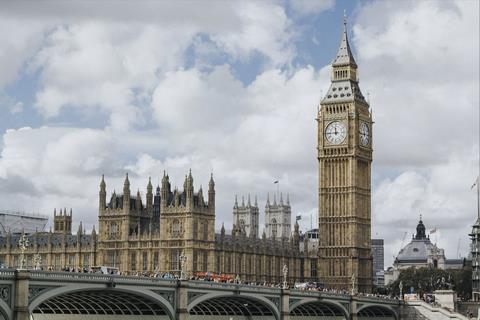Microbiologists need to seize opportunities to engage with policymaking in order to move towards better, more scientifically informed policy that serves the common good.

That’s the call issued in a new paper ‘Pathways to maximising microbiologists’ impact in UK policymaking’, which appears in Sustainable Microbiology, an Applied Microbiology International publication.
READ MORE: AMI young scientist turns spotlight on government science policy
READ MORE: AMI’s pitch on bacteriophages is winner of My Science Inquiry
The paper provides an overview of the UK policymaking process, and tools for life scientists to input their expert knowledge into this process, says author Dr Paul-Enguerrand Fady, Biosecurity Policy Manager with The Centre for Long-Term Resilience in the UK.
“This work seeks to bridge the gap between scientists and policymakers. Policymaking is increasingly driven by scientific data and evidence, yet few policymakers in the UK have a high degree of scientific literacy,” he says. “Unfortunately, expert microbiologists are approximately as unfamiliar with the UK policymaking process as policymakers are with microbiology. This article seeks to fill this knowledge gap by providing practical suggestions for life scientists to meaningfully influence policy.”
One stop shop
Dr Fady says he is not aware of any consolidated resources acting as a “one-stop shop” for information tailored to life scientists on how they can engage with the policymaking process in the UK, and this work attempts to centralise, simplify, and deliver practical information that microbiologists can use to begin directly engaging with the policymaking process.
“The paper outlines specific real-world opportunities for microbiologists to engage with the policymaking process and mechanisms in which to do so. This includes submitting evidence to Parliamentary Committee inquiries, working with the Parliamentary Office of Science and Technology or Knowledge Exchange Unit, engaging with policy teams within learned societies, and more,” he says.“The implications of microbiologists using these tools to influence the policymaking process is better, more scientifically informed policy that serves the common good.
Seizing opportunities
To build on this work, microbiologists, as the target audience, need to use the tools described to seize opportunities to engage with policymaking, Dr Fady says.“On a wider level, there needs to be a serious rethinking of how the country is run, with expertise put at the heart of decision-making and specialism valued over generalism. The UK is, at almost all levels, run by generalists. Experts are not encouraged into Government. For well informed policy to become the norm, this must change.”
Dr Fady says the ideas contained in the piece have been arranged into a coherent format over a long period of time at talks given to the Microbiology Society (Annual Conference, April 2023), the East Midlands Microbiome Research Network (Research Day, July 2024), and most recently the Royal Society (Theo Murphy meeting entitled “Microbiome manipulation for health: building a shared narrative”, October 2024).
’Pathways to maximising microbiologists’ impact in UK policymaking’ is published in Sustainable Microbiology.
Topics
- Applied Microbiology International
- Climate Action
- Community
- Economic Equality
- Future Technologies
- Knowledge Exchange Unit
- learned societies
- Parliamentary Committees
- Parliamentary Office of Science and Technology
- Paul-Enguerrand Fady
- Policy
- Public Health
- Research News
- Science Communications
- The Centre for Long-Term Resilience
- UK & Rest of Europe







No comments yet